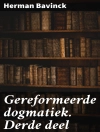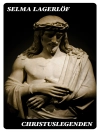In ‘The Age of Reason, ‘ Thomas Paine offers a compelling critique of organized religion and an ardent defense of reason as the only path to understanding the universe. Written in a clear, persuasive style characteristic of Enlightenment thought, Paine’s work interweaves philosophy, theology, and political commentary, challenging the dogma of traditional beliefs and advocating for deism—a belief in a rational creator accessible through reason, rather than revelation. Contextually, the book emerges from the revolutionary fervor of the late 18th century, where questioning authority became a formidable force for societal transformation. Thomas Paine, a pivotal figure in the American Enlightenment, drew from his experiences as a pamphleteer during the American Revolution, where he championed liberty and reason. His disdain for institutionalized religion can be traced back to his upbringing in England, marked by religious conflict and a rising sentiment for rational inquiry. Paine’s brush with both political upheaval and philosophical discourse equipped him with a unique perspective, from which he sought to liberate individuals from the chains of superstition and blind faith. ‘The Age of Reason’ remains an essential read for those interested in Enlightenment ideals and the interplay between religion and reason. Paine’s audacious arguments invite readers to cultivate skepticism and critical thinking, making the book a timeless manifesto for personal freedom and intellectual independence.
About the author
Thomas Paine (1737-1809), a figure of immense influence in both the American and French Revolutions, left an indelible mark on the political landscape of the 18th century. English-born, Paine migrated to the American colonies in 1774, carrying with him a fervent belief in individual rights and the power of argument to incite change. His pamphlet ‘Common Sense’ (1776) was instrumental in convincing many Americans to support the cause for independence from Britain. Paine was not only a revolutionary in politics but also in religion and society. His work ‘The Age of Reason’ (1794), represents Paine’s theological stance, a deistic critique of institutionalized religion and Christian theology. Asserting a belief in a divine creator and advocating for the use of reason in place of revelation, Paine’s work challenged the orthodox assumptions of his time and has been influential in various free-thinking movements. Paine’s literary style is characterized by directness, clarity, and an unshakeable commitment to individual freedom and rational thought. Although controversial in its time, ‘The Age of Reason’ is a seminal text that reflects the enlightened ideas that shaped modern democracy and secular thought. Paine’s legacy endures in the principles of liberty and human rights that continue to underpin democratic societies.












